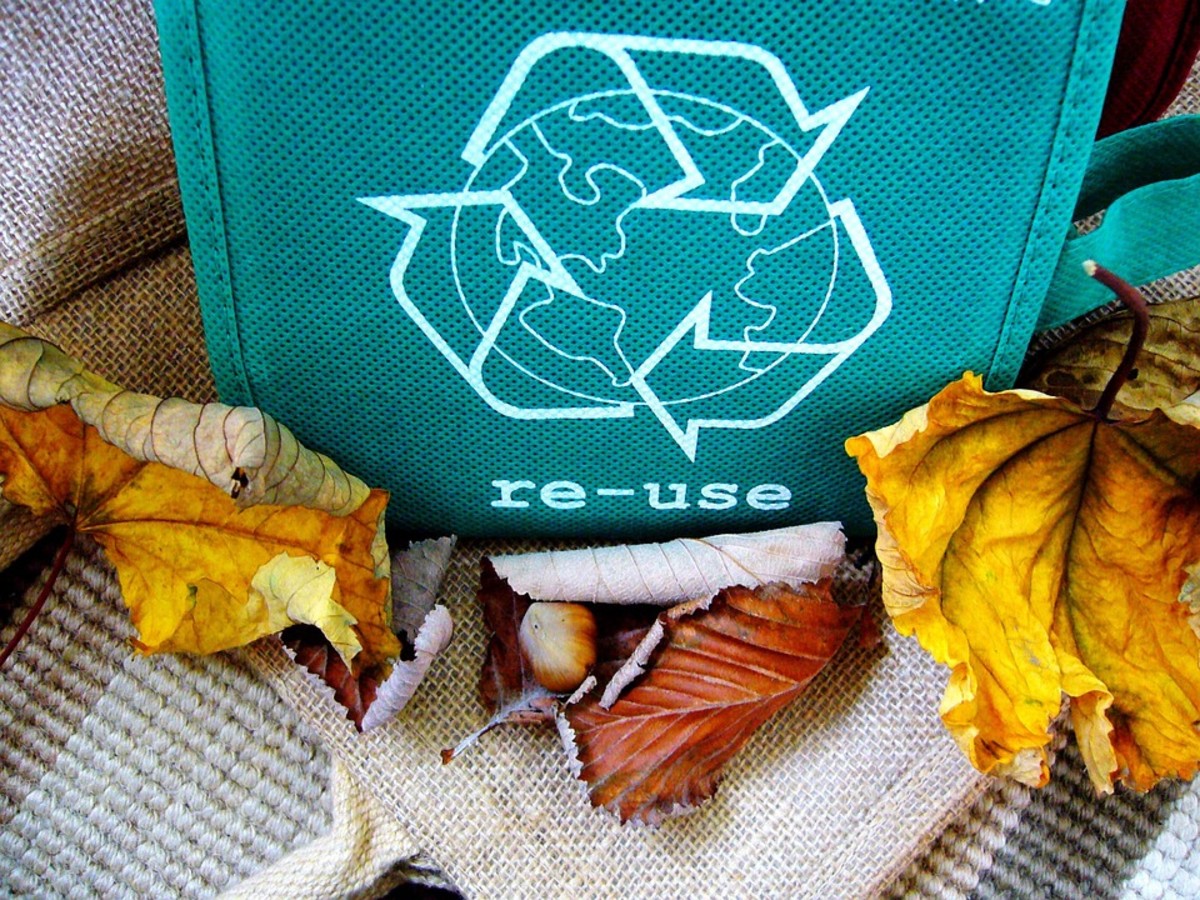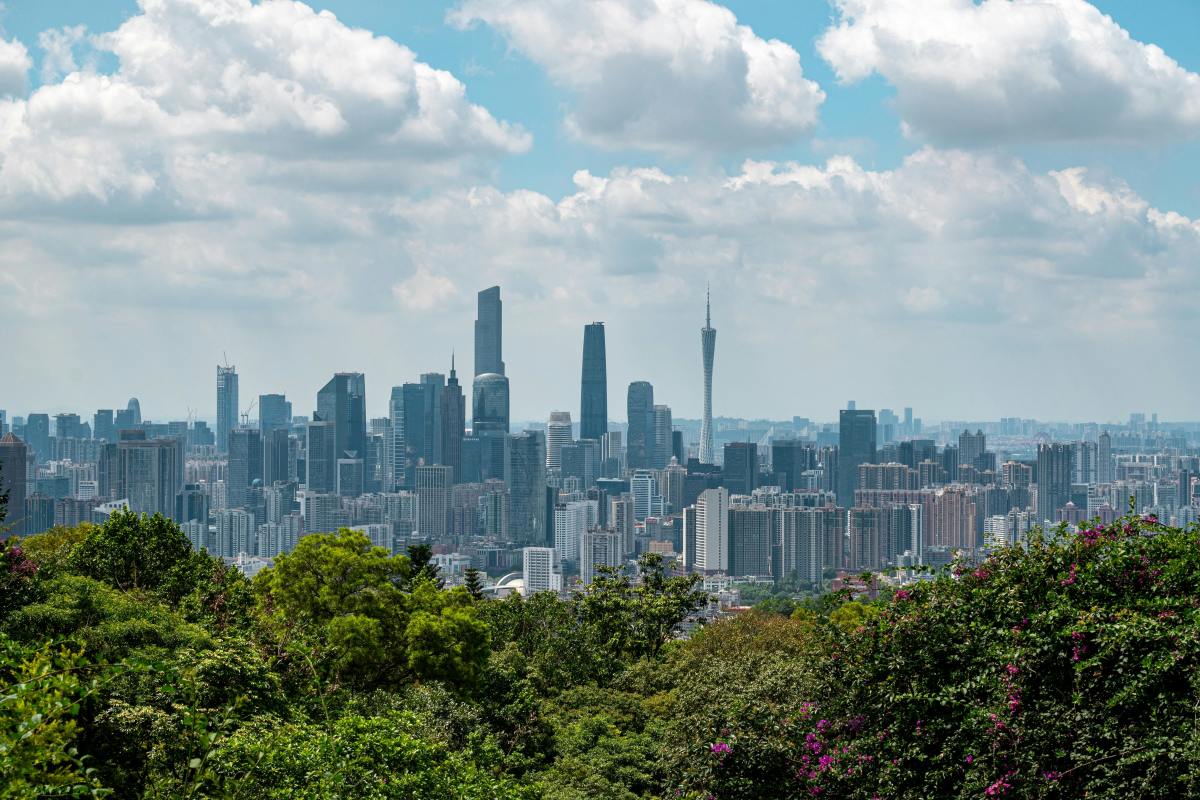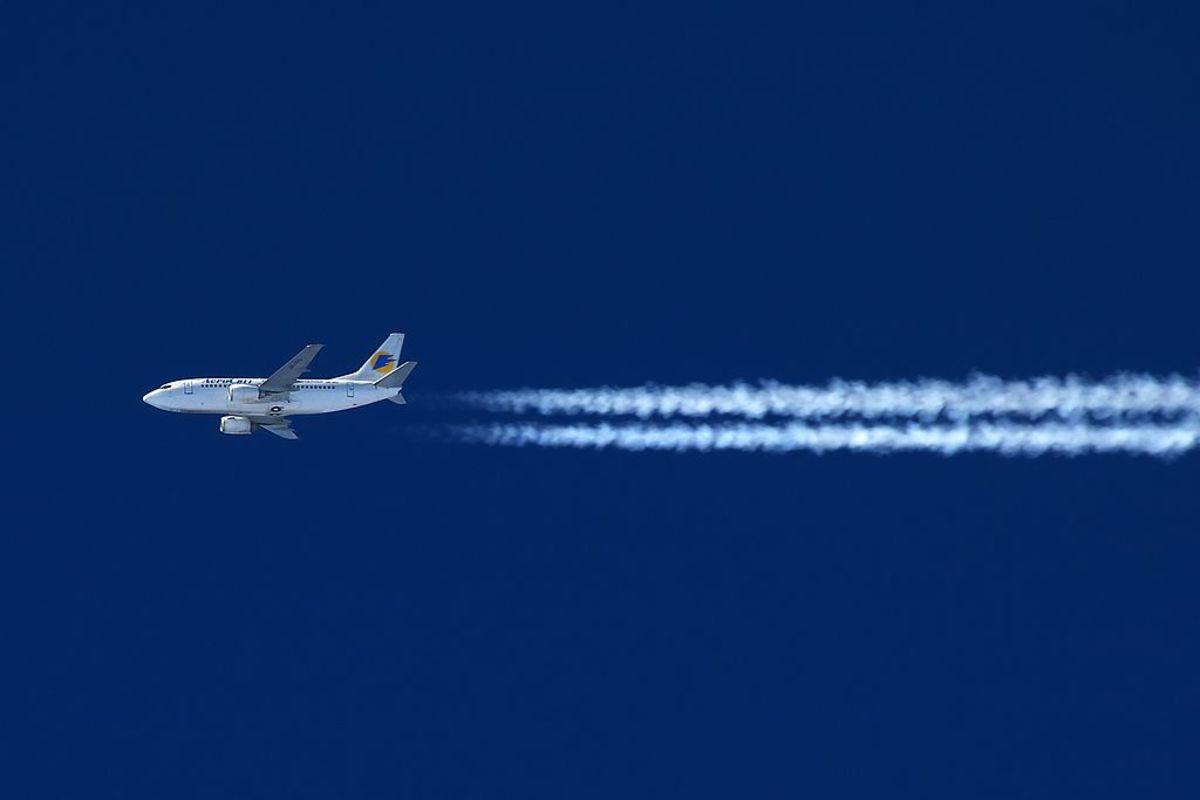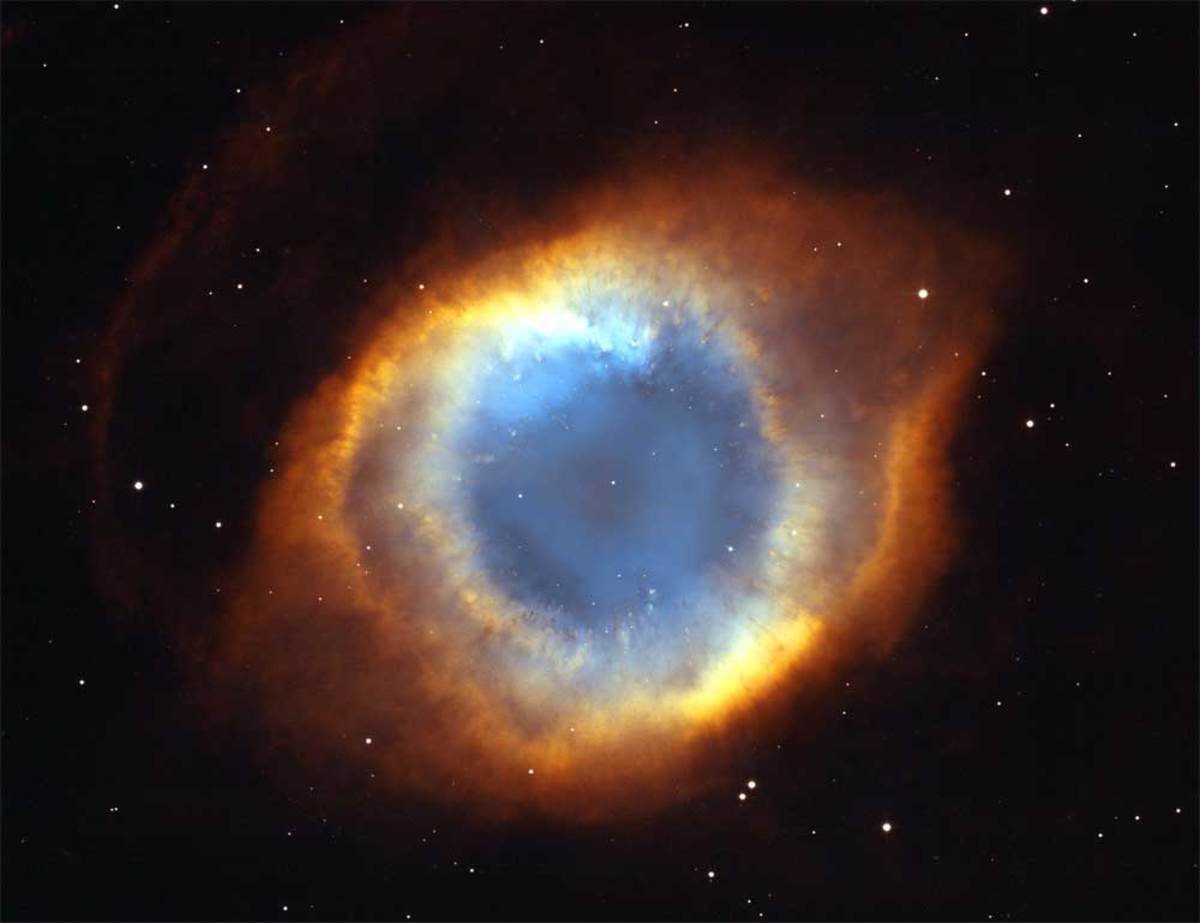Why We Must Go Green!
We Go Green by Taking Care of this Earth that God Created for Us.
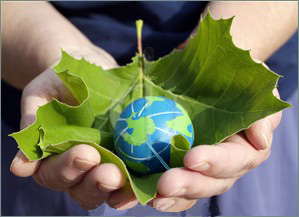
God Created Green Plants on the Third Day
"Then God said, "Let the earth bring forth grass, the herb that yields seed, and the fruit tree that yields fruit according to its kind, whose seed is in itself, on the earth"; and it was so. And the earth brought forth grass, the herb that yields seed according to its kind, and the tree that yields fruit, whose seed is in itself according to its kind. And God saw that it was good. So the evening and the morning were the third day." (Genesis 1:11-13)
God created the universe in an orderly manner. From the very beginning God had been preparing the earth to be inhabited therefore He created plants and vegetation before human beings and animals. Plant life was created to provide for our physical needs: food to eat, oxygen to breathe and wood for burning.
God gives Us Green Plants that are Essential to Life on this Earth
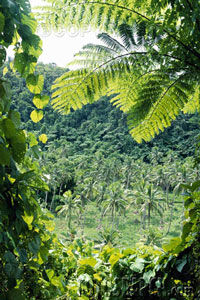
The Green Color in Plants is Essential to Life
Molecules are small particles that make up all living and non-living things. Some molecules are colored, such as chlorophyll which is green and responsible for the green color of foliage and leaves.
The green color of chlorophyll is critical to our life on earth. Chlorophyll facilitates photosynthesis, converting carbon dioxide in the atmosphere to the oxygen we breathe.
Chlorophyll appears green because it absorbs red light from sunlight and it is this absorbed energy which drives photosynthesis. So color in plants is more than decorative: it is essential to life.
Green Plants produce Oxygen for the Breath of Life
When God created the first man Adam He "breathed into his nostrils the breath of life". Adam became alive when he breathed the oxygen that was produced by the sun's rays on the green plants in the Garden of Eden.
Fresh pure air is an essential part of life. We can live for weeks without food, days without water, but only minutes without air. Every cell in our body requires oxygen in order to function well, so if the air we breathe is polluted then our body cells will malfunction and we become sick. Pure air helps to produce good blood that is the river of life in our bodies.
The Bible states very clearly: "For the life of the flesh is in the blood, . . ." (Lev. 17:11). The blood is the fluid though which the body is nourished, waste is removed and repairs are made. In order to have good blood, we must breathe well.
Fresh air is God's free blessing that vitalizes the whole system. Full, deep breathing of pure air will fill the lungs with oxygen, and help to purify the blood that is sent to every part of the body. A good breath of fresh air soothes the nerves; it stimulates the appetite and renders digestion more perfect; and it also induces sound, refreshing sleep.
Go Green by having a Diet that consists of Green Plant Food for Good Health and Long Life
"And God said, "See, I have given you every herb that yields seed which is on the face of all the earth, and every tree whose fruit yields seed; to you it shall be for food." (Genesis 1:29)
The Creator designed us to use green plant life for the purpose of sustaining life within our bodies. The original diet given to Adam and Eve in the Garden of Eden was green vegetables, grains, fruits, and nuts which is the perfect diet that enabled our early ancestors to have long life.
Adam 930 years old (Gen. 5:5)
Seth 912 years old (Gen. 5:8)
Enosh 905 years old (Gen. 5:11)
Cainan 910 years old (Gen. 5:14)
Mahalaleel 895 years old (Gen. 5:17)
Jared 962 years old (Gen. 5:20)
Enoch 365 (Gen. 5:23-24)
Methuselah 969 years old (Gen. 5:27)
Lamech 777 years old (Gen. 5:31)
Noah 950 years old (Gen. 9:29)
Longevity is related to good health. In order to live a long life one must be healthy, and we can see that good health is dependent on what the person eats and drinks. Nutrition is the natural or organic processing of food and drink for the nourishment of the human body in order to keep healthy or to grow.
After the Great Flood God allowed man to eat meat but with restrictions.
"Every moving thing that lives shall be food for you. I have given you all things, even as the green herbs. But you shall not eat flesh with its life, that is, its blood." (Gen. 9:3-4)
After meat was introduced to the diet of man we can see the life span became shorter. Abraham, for example, lived 175 years (Gen. 25:7). A few generations later, Joseph lived only 110 years (Gen. 50:22). We are told in the Psalms that seventy years is considered to be a long life, and men reach eighty years only "by reason of strength" (Psm. 90:10). David died at the age of seventy in about 1000 BC, and is described as dying "in a good old age, full of days" (I Chr. 29:28).
Air pollution shortens the Lives of People living in Cities
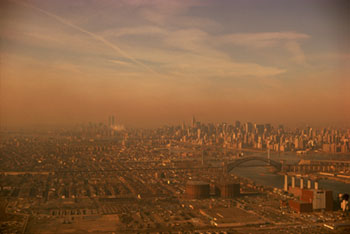
Pollution to the Environment is harmful to the Earth and its Inhabitants
Pollution can be described as the deliberate or accidental contamination of the environment with waste that is created by human action . A pollutant is a substance or effect which adversely alters the environment by changing the growth rate of species, interferes with the food chains, is toxic or interferes with health, comfort, amenities or property values of people.
Pollutants are introduced into the environment in significant amounts in the form of sewage, waste, accidental discharge, or as a by-product of a manufacturing process or other human activity. The damage caused to the biosphere may be briefly summarized as follows:
1. Damage to human health caused by specific chemical substances present in the air, food, water and radioactivity materials
2. Damage to the natural environment which affects vegetation, animals, crops, soil and water
3. Damage to the aesthetic quality of the environment caused by smoke, chemical fumes, dust, noise, the dumping of solid waste and waste water
4. Damage caused by long term pollution effects which are not immediately apparent. The dangerous effects are caused by low level pollution absorbed into the body over long periods of time, for example carcinogenic substances, radioactivity and excessive noise
Types of Pollution (a) Air Pollution (b) Land Pollution (c) Water Pollution (d) Automobile Pollution (e) Noise Pollution (f) Solid Wastes
Air Pollution affects everyone in the Community - young and old alike.
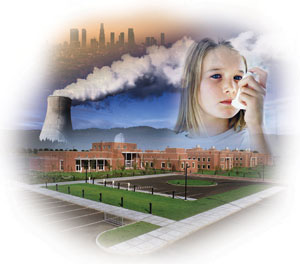
Go Green by Reducing Air Pollution
1 Our planet is a closed system with finite resources.
The resources that exist on our planet are all we have. The population continues to increase rapidly, putting a drain on available resources. If everyone would do a little bit to cut down on pollution, the cumulative effects will make a difference.
Energy consumption is a major contributor to the pollution problem. Much power is created in coal burning electric generators that spew out greenhouse gases which pollute the air with mercury and other contaminants that fall back to earth and pollute the land and water.
Our dependence on oil is another major culprit to the pollution problem. From oil spills, to production of plastics, to chemical fertilizers, pollution created by oil production continues to damage the fragile ecosystem we live in.
2. Small changes in our daily routines can help reduce air pollution.
1. When sitting in a car waiting for to pick someone up, turn off the engine. Idling engines do make up a portion of the air pollution caused by cars.
2. Take a walk. For short distances, walk rather than drive. Enjoy the outdoors, meet new neighbors, chat with friends, view the landscaping ideas of others, and hear the birds sing.
3. When looking at purchasing a new car, consider a hybrid or a car with higher gas mileage and fewer emissions.
4. Carpool or use mass transit as much as possible.
5. Ride a bicycle instead of driving as often as possible.
6. Walk or run to the health club instead of driving to the gym and then walk or run on the treadmill for an hour. Why not get the exercise of walking before and after the gym? It takes the same time and the view is ever more interesting.
7. Eliminate the use of a leaf blower and get the exercise of raking instead.
8. Many gas-powered lawn mowers are built without any pollution devices. Solutions include replacing the lawn with landscaped areas or use a push mower. An electric mower will reduce air pollution a bit, but the power company still generates pollution.
9. Reduce your electric consumption. Coal burning or nuclear power plants produce most of the power generated for Wilmette. Both contribute to air pollution.
10. Plant trees, bushes and other perennial plants as they help clean the air and provide the oxygen we breathe. Native plants require limited maintenance, are drought resistant and encourage butterflies and birds.
11. Avoid using Volatile Organic Compound (VOC) products that produce noxious fumes and evaporate readily to the atmosphere.
Go Green by either Cleaning up the Air Pollution in the City or Move to the Rural Area where the Air is Purer and there is No Pollution
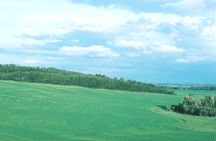
Go Green by Reducing Land Pollution
Small changes in our daily routines can help reduce land pollution.
1. Chemical insecticides and pesticides are the greatest source of land pollution in any city, town or village at the expense of all the living organisms that make up a normal healthy plot of land.
2. Avoid littering and help clean up litter left by others. Programs exist to assist the Forest Preserve in cleaning the woods.
3. Composting your organic material (grass clippings, weeds and leaves) will provide valuable topsoil full of nutrients and the bacteria and fungal organisms necessary for a healthy plot of land.
4. Supplement compost by mulching your gardens. This mulch provides the raw material the soil needs to become a healthy place for the vital organisms to grow in soil and gardens.
5. Dispose of toxic substances (paint, batteries, oil, cleaners for paint and oil, etc) properly.
6. Recycle unused material and substances to reduce landfill waste.
7. Support wildlife preservation organizations focusing on habitat protection and restoration.
8. Leave the lawn clippings on the lawn after cutting to fertilize naturally while reducing landfill materials.
Go Green by Reducing Water Pollution
Small changes in our daily routines can help reduce water pollution.
1. Change to eco-friendly cleaning products for the dishwasher and laundry to reduce the amount of bleach, phosphate and other harmful chemicals added to the water system.
2. Cleaning paint brushes in the basement laundry tub releases toxins into the water stream.
3. When changing oil from the automobile, dispose off properly rather than dumping the used oil into the sewer.
4. Remember that anything dumped into the sewer could end up in our drinking water as the water filtration process does have its limits.
5. Collecting rainwater will reduce the amount of water processed during a storm. When the storm system is overloaded, the raw sewerage is released into the Lake. In addition, the water collected is great for the plants since it is chlorine-free.
6. Clean your car with eco-friendly cleaning products.
7. Items that reduce air pollution also reduce water pollution as rain collects many of the pollutants and brings them back to earth, polluting both land and water.
8. RecruitvVolunteer for a water system cleanup of the river, lake or pools
9. Reduce water consumption by turning off the faucet when you brush your teeth, using low water usage plumbing fixtures, landscaping with drought resistant plants, irrigating gardens at night to reduce evaporation and maximize water absorption, using your dishwasher sensibly, and by turning off the hose between rinses when washing your car.
10. Eliminating chemical lawn care products will minimize the pollution that leaches down to the water table and enters into the water system.
Go Green by Reducing Automobile Pollution
1. Reduce Automobile Pollution
Drive less.
Walk, ride your bike, carpool, and take public transportation.
Combine errands in a single trip.
Limit the use of your air conditioning.
Change your car's air filter.
Accelerate gradually.
Don't speed.
Fill your gas tank in the morning or early evening, and not at mid-day.
Avoid idling (even 3 minutes is too long to idle).
Check and maintain your tire pressure.
If you cannot follow all of these tips every day, pick a few and pitch in to reduce automobile pollution.
Go Green by Working in Unity and Harmony with One Another to Clean the Pollution in the Air, Land, Water and Automobiles.


